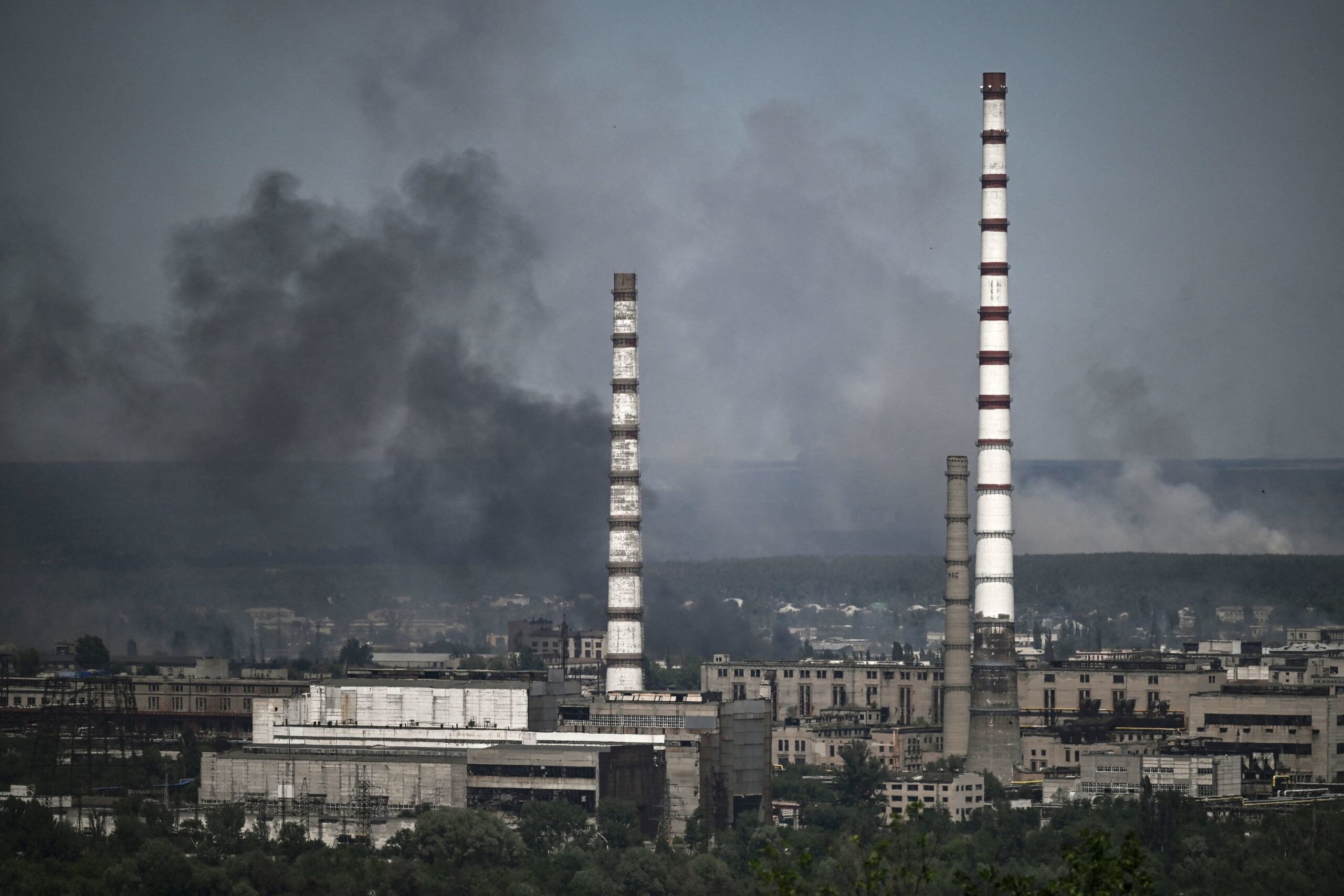An atrocious scenario like the one in Mariupol is simmering in the east of Ukraine. Not only Ukrainian soldiers and fighters trying to stop the heavy but constant Russian advances, but also a large number of civilians seeking refuge, have been barricaded in the Azot chemical plant for days. But Azot does not produce steel like occupied Azovstal, but rather nitric acid, raising concerns about Russian artillery attacks.
The latest report from British Intelligence certifies an increasingly present fear: the Kremlin does not stop sending more and more troops to the battlefields of Donbas to continue expanding its control. It doesn’t seem to matter to President Putin that the front has become a meat grinder for brigade members used to being in reserve. The axis of the fighting is Severodonetsk, one of the largest cities in the region and where, according to the leader of Ukraine, the fate of his country is decided.
“It is a very fierce battle, very difficult. Probably one of the most difficult in this war,” acknowledged Volodimir Zelenski in one of his last appearances. It is corroborated by sources on the ground to EL MUNDO. The town, with about 100,000 inhabitants before the invasion, is located on the eastern bank of the Siverskyi Donetsk River, one of the natural borders in this war. Russian artillery destroyed the second bridge that connects to the city, reducing the options to send supplies.
With their weapons capacities diminished against the Russian army and the separatist brigades that support it, the Ukrainian forces try to retain territory and even advance in this population of the Lugansk region. But the difficulties accumulate in the industrial area where Azot is located. As reported by the Ukrainian TV network, a fire broke out in the chemical factory facilities after tons of oil leaked from a radiator damaged in the fighting.
The situation did not escalate. But, a day earlier, the Organization for the Prohibition of Chemical Weapons (OPCW) was “very closely following” developments in Ukraine. Urban fighting is taking place in Severodonetsk and, according to Ukrainian officials, the soldiers have managed to take important parts of its urban fabric. Serhiy Haidai, a government delegate in Lugansk, explained to the Washington Post that he expects Russia to “throw all its reservists” against Severodonetsk.
Moscow’s short-term goal, according to Haidai, is to seize the Bakhmut-Lysychansk expressway to the west of the city, encircle the city and push further west to strengthen its hold on Lugansk. Although this afternoon separatist sources announced that Russian troops had managed to isolate a large part of the Ukrainian forces in the Severodonetsk industrial area, Ukraine denied this. The fight continues, they insisted, despite the multiple casualties suffered in the last few hours.
Ukrainian fighters have denounced that they lack weapons to face the enemy. For its part, Russia has dealt another blow to Ukraine’s aspirations to receive more weapons from the West. A volley of missiles hit various positions near Chortkiv, in the western region of Ternopil. At least 22 people were injured, including a minor, according to official Ukrainian sources. One of the shells damaged a gas pipeline. “The missiles came from the Black Sea,” said Volodymyr Trush, head of the regional administration.
In a statement, the Russian Defense Ministry argued that this attack, far from the areas where combat was taking place, was carried out with Kalibr-type cruise missiles. His target was, according to the Kremlin, a warehouse containing anti-tank missiles and artillery ammunition. kyiv did not corroborate that information, which presumably evidences the logistical problems Ukraine suffers from having to receive arms supplies from its allies by land and traveling long distances.
Jordan Gatley, a former British soldier fighting in Ukraine alongside kyiv forces against the Russians, was shot dead, his family said on Sunday, calling him a “hero.”
His father, Dean Gatley, said on Facebook that his son had left the British Army in March and went to Ukraine “after careful consideration”.
Gatley said her son was killed in the eastern Ukrainian city of Severodonetsk under intense Russian attack.
His fellow Ukrainians had praised “his wealth of knowledge, his skills as a soldier and his love for his work,” the father said. “He was truly a hero and he will always be in our hearts,” he added.
In April, the government said a UK citizen had also died in Ukraine and another was missing. Both had participated in combat against Russian forces. / AFP
Conforms to The Trust Project criteria
















